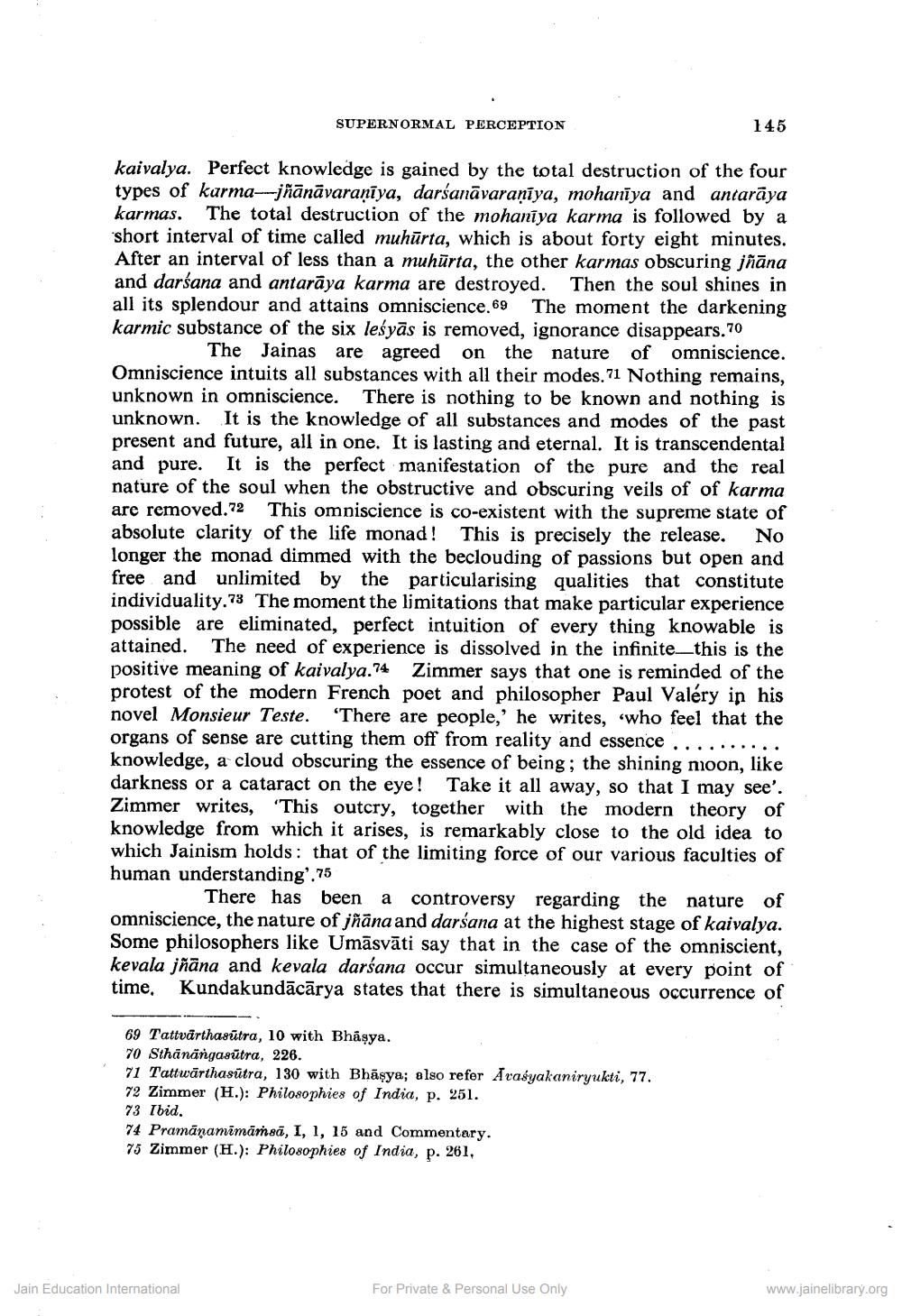________________
SUPERNORMAL PERCEPTION
145
kaivalya. Perfect knowledge is gained by the total destruction of the four types of karma---jñānāvaranīya, darśanāvaranīya, mohanīya and antarāya karmas. The total destruction of the mohanīya karma is followed by a short interval of time called muhūrta, which is about forty eight minutes. After an interval of less than a muhūrta, the other karmas obscuring jñāna and darśana and antarāya karma are destroyed. Then the soul shines in all its splendour and attains omniscience.69 The moment the darkening karmic substance of the six leśyās is removed, ignorance disappears. 70
The Jainas are agreed on the nature of omniscience. Omniscience intuits all substances with all their modes. 71 Nothing remains, unknown in omniscience. There is nothing to be known and nothing is unknown. It is the knowledge of all substances and modes of the past present and future, all in one. It is lasting and eternal. It is transcendental and pure. It is the perfect manifestation of the pure and the real nature of the soul when the obstructive and obscuring veils of of karma are removed.72 This omniscience is co-existent with the supreme state of absolute clarity of the life monad! This is precisely the release. No longer the monad dimmed with the beclouding of passions but open and free and unlimited by the particularising qualities that constitute individuality.73 The moment the limitations that make particular experience possible are eliminated, perfect intuition of every thing knowable is attained. The need of experience is dissolved in the infinite_this is the positive meaning of kaivalya.74 Zimmer says that one is reminded of the protest of the modern French poet and philosopher Paul Valéry in his novel Monsieur Teste. “There are people,' he writes, who feel that the organs of sense are cutting them off from reality and essence .......... knowledge, a cloud obscuring the essence of being; the shining noon, like darkness or a cataract on the eye! Take it all away, so that I may see'. Zimmer writes, 'This outcry, together with the modern theory of knowledge from which it arises, is remarkably close to the old idea to which Jainism holds: that of the limiting force of our various faculties of human understanding'.75
There has been a controversy regarding the nature of omniscience, the nature of jñāna and darsana at the highest stage of kaivalya. Some philosophers like Umāsvāti say that in the case of the omniscient, kevala jñāna and kevala darśana occur simultaneously at every point of time, Kundakundācārya states that there is simultaneous occurrence of
69 Tattvārthasūtra, 10 with Bhāşya. 70 Sthānangasūtra, 226. 71 Tattwārthasūtra, 130 with Bhāşya; also refer Arasyakaniryukti, 77. 72 Zimmer (H.): Philosophies of India, p. 251. 73 Ibid. 74 Pramanamimāmsā, I, I, 15 and Commentary. 75 Zimmer (H.): Philosophies of India, p. 261,
Jain Education International
For Private & Personal Use Only
www.jainelibrary.org




